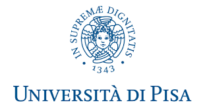The Project Coordinator (PC), Slovak University of Technology in Bratislava (STUBA), is the main representative of the consortium (primus inter pares) and the intermediary between the partners and the European Commission. The PC monitors and evaluates the progress of the project and implements corrective actions, where needed, to secure the success of the proposed work plan.
STUBA is the best ranked technical university in Slovakia, specialised in computer and technical sciences andengineering. Almost 11,000 students attend its 7 faculties. Its graduates are among the most desirable employees in theSlovak labour market. The research groups on automatic control hold a strong position in Slovakia (evaluation of topgrade A in the last national accreditation) and emerge towards stronger international recognition.
The Coordinator, Prof. Miroslav Fikar (h-index 17) from STUBA has successfully acted as Training Manager and as a member of Executive Board in the recent MSCA-ITN project TEMPO10, as Coordinator in the recent MSCA-IF-EF-ST project GuEst11 and led many national research projects. His research interests are in chemical process control, optimal control, published in journals as IEEE Transaction on Automatic Control, Automatica, Journal of Process Control. He is Academician of the Learned Society of Slovakia. Moreover, as a former rector of STUBA, he has knowledge of systems and mechanisms in research quality, connections to industrial partners, and to governmental structures.
Ruhr-Universitaet Bochum (RUB) is among the ten largest research universities in Germany. The continuing research success is witnessed byprestigious collaborative research centers and federal research buildings. Five research center buildings have beengranted by the federal government for RUB, which, most prominently the Center for Smart Product Service Systems,will serve as a model project for future multidisciplinary, university-wide projects at STUBA. Similarly, the RUBResearch School, which provides an umbrella for international reachout activities and PhD programmes at RUB, andthe World Factory for the support of spin-off activities will serve as blueprints for fostering excellence at STUBA. Theresearch group on automatic control holds a strong position both nationally and internationally.
Prof. Martin Mönnigmann (h-index 18) leads the Chair of Automatic Control and Systems Theory at Mechanical Engineering Department of Ruhr-University Bochum. The chair regularly publishes in top journals as Automatica, IEEE Transactions on Control Systems Technology, and Physical Review. Prof. Mönnigmann’s research interests include optimal control, model reduction, and modelling and control of industrial processes with a focus on hydraulic and energy systems. He served the International Federation of Automatica Control (IFAC) as Executive Committee member and in several other positions, and as Publication Chair and Editor for IFAC and IEEE conferences. He is an associate editor of the IFAC journals Automatica and Journal of Process Control. Prof. Mönnigmann has successfully aquired and completed many third party research projects funded by national and international bodies (e.g. German Federal Ministry for Education and Research, German Research Foundation (DFG), EU (EFRE)) and national and international industrial partners (e.g. Ingersoll Rand, Flowserve/SIHI). Notably, Prof. Fikar and Mönnigmann completed a five-year research alliance project funded by Alexander von Humboldt Foundation. Prof. Mönnigmann is currently the head of a DFG Research Training Group and member of the board of the newly founded Center for the Engineering of Smart Product Service Systems, which inaugurated a Federal Research Building in 2021.
Universita Di Pisa (UNIPI) is one of the most renowned educational institutions in Italy. It has signed 286 international inter-universityagreements world-wide to promote and carry out joint activities related to teaching, research and training. Technologytransfer is one of the key points of UNIPI mission, with numerous Italian, US and EU patents in its portfolio, more than30 spin-off companies (113 prizes won by spin-offs), and several Technological Districts involving UNIPI and localSMEs. UNIPI is currently involved in 206 EU-funded research projects under H2020 and other European programmes(EU contribution: 68.3Me). The research group in chemical process control and optimization, focused model-basedand data-driven optimal control methods and applications, is widely known in Italy and internationally.




